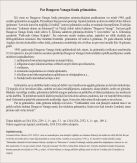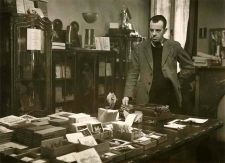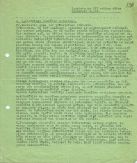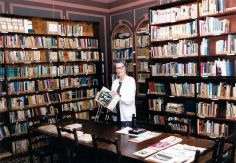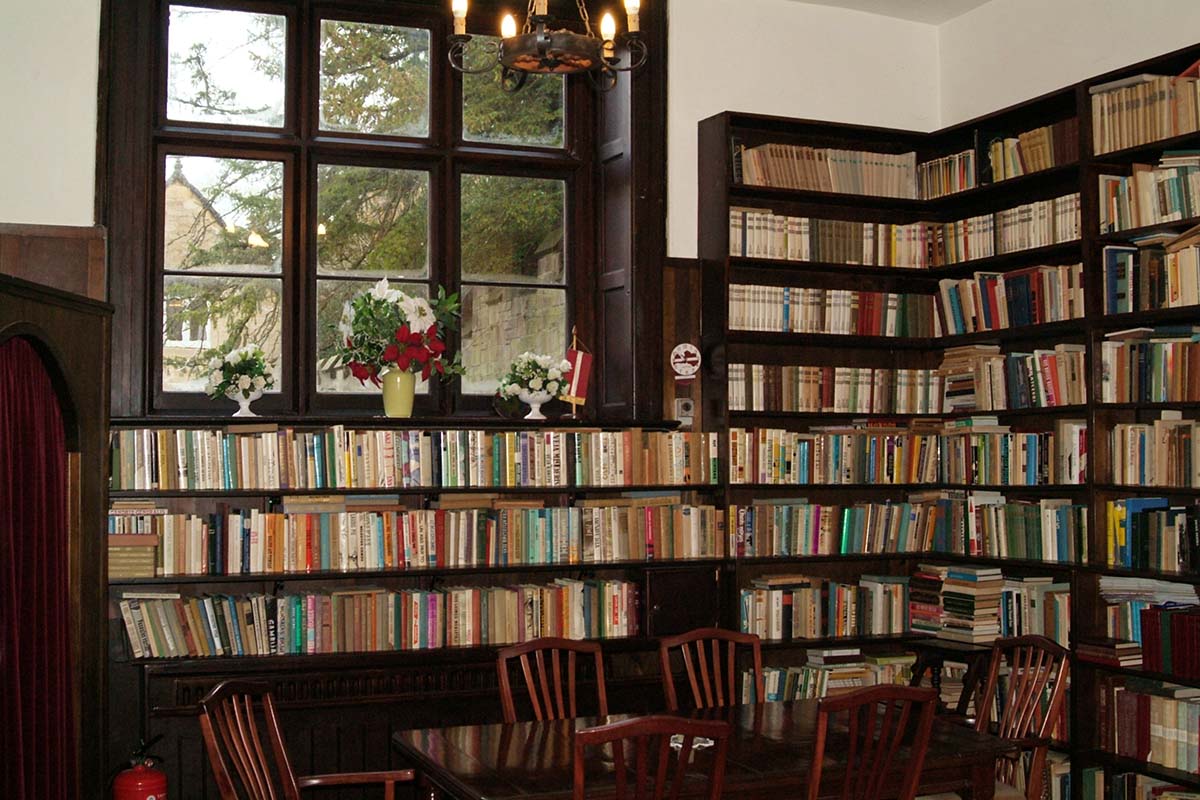In the autumn of 1949, the Latvian envoy Kārlis Zariņš, addressing the board of the Latvian Welfare Fund (DVF), called for the establishment of a network of libraries in the branches and donated the first 50 books. On 25 February 1950, the DVF Central Library in London opened. Soon, libraries with significant book collections were established in all major DVF branches, at least in those that purchased their own properties.
In 1984, with the help of Marita Grunts, Rūta Tetere and Ērika Mellakaula, Inese Auziņa-Smith started to create a union catalog of books in all these Latvian libraries. Great support was provided by DVF and the Latvian National Council in Great Britain (LNPL). Along with this work, in 1984, under the leadership of I. Auziņa-Smith and with the support of the DVF, the Latvian Repository of Cultural Heritage (LKVK; later the Latvian Documentation Centre and Archive – LDCA) was established at Catthorpe Manor (“Straumēni”). In 1989, the creation of the union catalog was completed, and in the future only new acquisitions were to be registered. In 1990, there were almost 20 Latvian libraries in the DVF branches Britain: London, Catthorpe Manor, Leeds, Corby, Bradford, Wolverhampton, Bolton, Doncaster, Coventry (Mūsmājas”), Halifax, Huddersfield, Birmingham, Nottingham, Mansfield, Carlisle, Leeds, Swansea. There were also libraries at the “Latvian Home” in Almeley, Rowfant House, the Latvian mother-tongue chools in London and Nottingham, the London Bibliographic Library and the LKVK. The union catalog included 8400 titles and a total of 26,452 volumes.
With the “Third Awakening” in the late 1980s, successful cooperation and regular exchange of books and personal contacts with libraries and librarians in Latvia began. In 1994, co-operation with the Misiņš Library (now the Academic Library of the University of Latvia) began, and later with other organizations, sending books, periodicals and other materials by Latvian writers published in exile. Oskars Lūsis initially assisted in packing and sending books to Latvia, but after him for more than 25 years, Jānis Tauriņš, who in 2015 relinquished this task due to age and ill-health. He passed away on 19 November 2016 at the age of 99.
As the number of Latvians in exile decreased, in the early 2000s and following years, several DVF branches stopped operating and their properties were sold. The collections of materials in the libraries of these branches were brought to the LDCA and duplicates were sent to libraries in Latvia. Since 2000, the LDCA has also been collecting events programmes and brochures, as these ephemeral publications are valuable materials for the reflection of Latvian social life and help to document their history.
In the summer of 2007, three librarians from Latvia worked at the LDCA for two weeks and helped organize the LNPL archive. From then on, every year some Latvian librarians came to Catthorpe Manor to assist in the processing of materials. In 2010, the collection of ephemeral publications had reached around 3000 copies, so a new project “Database and website of British Latvian events programmes” was created with the support of the Culture Foundation of the World Federation of Free Latvians and the Latvian Education Foundation in Great Britain (LifL). In addition, this stock is constantly being enlarged. Now these materials have been transferred to Riga, where they are being catalogued and classified.
Reflecting the growing importance of storing British exile archives, in 2010 the LKVK it was renamed the Latvian Documentation Center and Archive (LDCA). In 2016, with the support of PBLA and LNPL funding, in partnership with the Latvian National Archives, a new project was launched: “Digitisation of the LNPL archive”. Latvian librarians Eva Auseja, Silva Vucena, Aija Putniņa and Vita Juraga have especially helped to arrange LDCA materials.
In 2020, only the LDCA and the London Latvian Library are fully operational. Part of the books of Catthorpe Manor library are used by pupils of local Latvian mother-tongue school and their parents. In part, it is still possible to use the library books in the DVF Bradford branch.

